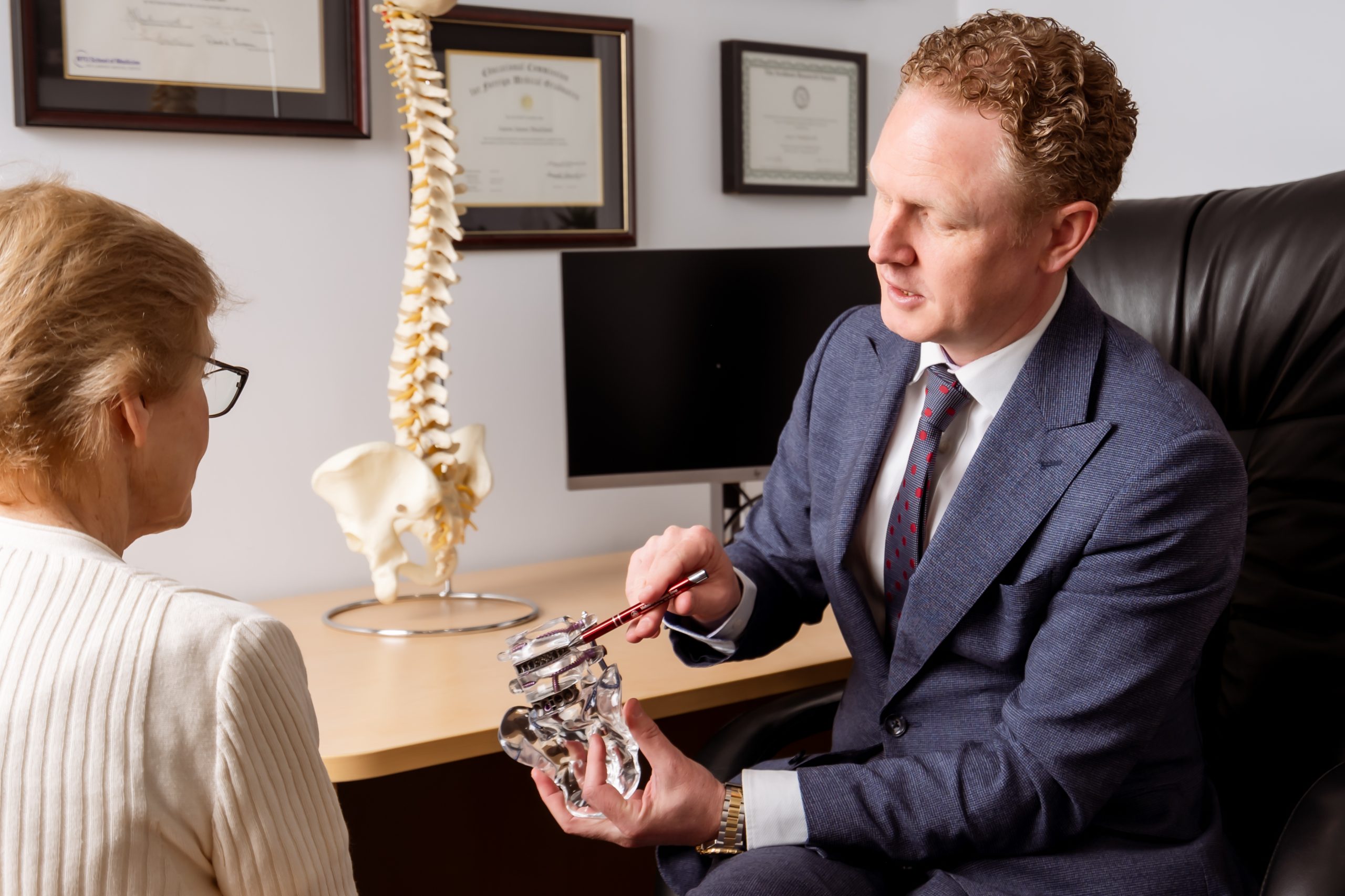
Your spine is the core support structure of your body – affecting posture, mobility, and even overall health.
Explore your spinal condition and treatment options from a reputable source


Surgeries Peformed
Discover the most common spinal conditions, how to recognize symptoms, and explore both conservative and advanced treatment options. Our multi-layered approach ensures you get the details you need in the format you prefer—quick overviews, deeper dives, and side-by-side comparisons.
Wear-and-tear of spinal discs, causing pain and reduced flexibility.
Symptoms: Chronic back pain, stiffness, possible radiating limb pain.
Treatments: Physiotherapy, lifestyle changes, or disc replacement/fusion if needed.
Inner disc material protrudes, pressing on nearby nerves and causing sharp pain.
Symptoms: Sharp “sciatica” pain, numbness, tingling, or weakness in limbs.
Treatments: Pain management, spinal injections, possible microdiscectomy.
Narrowing of the spinal canal, typically from bone spurs or thickened ligaments.
Symptoms: Leg pain, numbness, or weakness, relieved by leaning forward or sitting.
Treatments: Physiotherapy, epidural injections, decompression or fusion surgery.
One vertebra slips forward over the one beneath it, creating instability.
Symptoms: Lower back/leg pain, stiffness, difficulty in mobility.
Treatments: Bracing, core strengthening, or fusion to prevent further slippage.
Curvatures such as scoliosis or kyphosis that develop or worsen with age.
Symptoms: Visible curvature, uneven shoulders, chronic pain, possible breathing issues.
Treatments: Targeted physiotherapy, bracing, corrective fusion with instrumentation.
Malalignment or inflammation of the SI joints causing buttock and pelvic pain.
Symptoms: Pain aggravated by prolonged standing, stair climbing, weight-bearing rotation.
Treatments: PT, local injections, possible SI joint fusion for severe cases.
Mild discomfort or occasional back/neck pain is common. However, persistent or worsening symptoms— especially those with numbness, tingling, or weakness—may indicate a spinal issue that needs attention.
Most spinal problems are first approached conservatively—physiotherapy, exercise routines, or pain management. A targeted approach can often alleviate symptoms without surgery.
If persistent pain or red flag symptoms exist, additional diagnostics—like MRIs, CT scans, or nerve studies—may be needed. A specialist can interpret these results and recommend the next steps.
When conservative care isn’t enough, surgery may be the best path to relieve pain or prevent disability. Options range from decompression (laminectomy, microdiscectomy) to fusion or disc replacement.
If you’re experiencing persistent pain, neurological symptoms, or a significant impact on your daily life, consider our Free Preliminary Evaluation or schedule a direct consultation. Early assessment can help determine whether conservative therapy is sufficient or if advanced treatment may be necessary to restore comfort and functionality.
Start Your Free Preliminary Evaluation